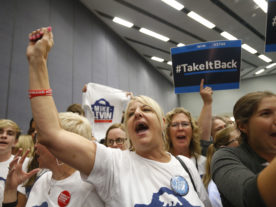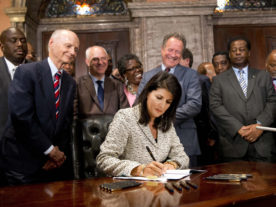Are boys easier to raise than girls?
By 2-to-1 Americans think so, according to a recent Gallup poll, which found 54 percent of Americans say boys are easier to raise. That compares to 27 percent who think girls are easier.
“When Gallup first asked this question in 1947, 42 percent of Americans named boys as easier to raise, 24 percent named girls and 24 percent volunteered that there was no difference,” Gallup wrote in a news release. “The results were nearly identical in the next update, four decades later in 1990. But since then, the percentage naming boys has increased, while the percentage saying ‘no difference’ has declined.”
Gallup found that men and young adults were more inclined to say boys are easier to raise.
For men, 58 percent agreed, while 24 percent said girls were easier. Women, in contrast, said boys are easier to raise (50 percent) compared to girls (29 percent).
Among Americans age 18 to 29, 62 percent said male children were easier. Gallup said those margins decrease somewhat as people get older.
“Despite increasing emphasis on equality for women and women’s rights in the U.S. in recent years, a majority of Americans continue to say that boys are easier to raise than girls,” Gallup said.
“These views may be rooted in a belief that girls are more emotional, particularly during their teenage years, and therefore are harder to raise than boys. It may also result from fears over threats to the safety of female children and teenagers,” the polling company added.
According to 2015 statistics from the United Nations, the United States had 104.6 boys born to every 100 girls. The global average is 107 boys per 100 girls. The country with the highest ratio of male births was Azerbaijan, with 118.9. China was second at 115.9.
























